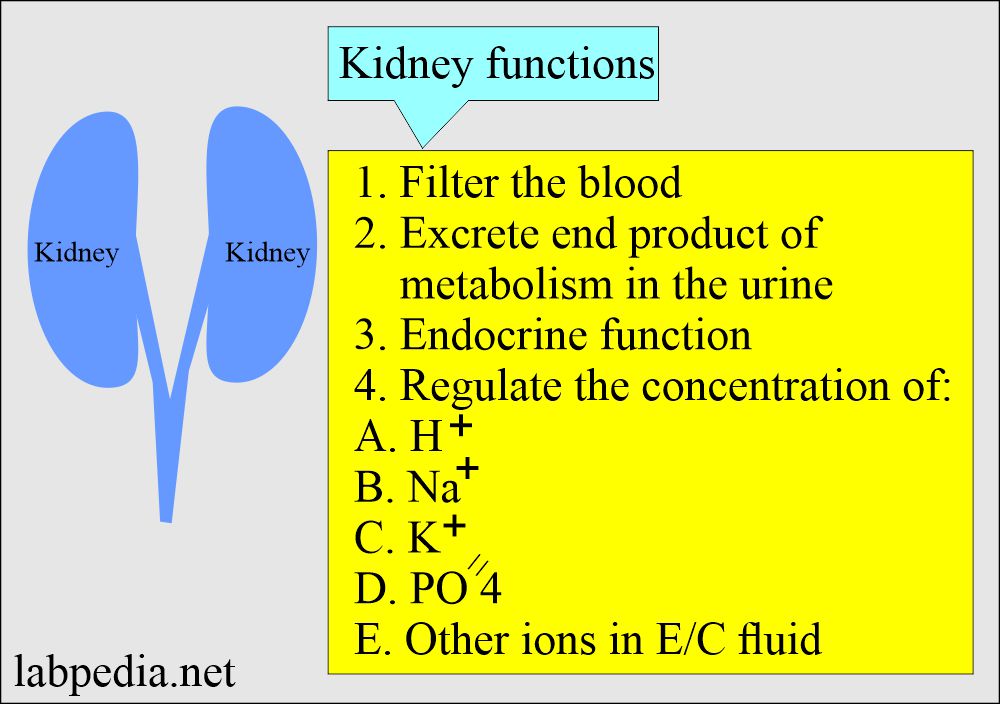Kidney function tests
Kidney function tests
Kidney function tests are essential for assessing how well your kidneys are working.
1. Blood Tests:
- Serum Creatinine: Measures the level of creatinine, a waste product from muscle metabolism. Elevated levels may indicate impaired kidney function.
- Blood Urea Nitrogen (BUN): Measures the amount of nitrogen in your blood from urea, another waste product. High levels can suggest kidney issues.
- Estimated Glomerular Filtration Rate (eGFR): Calculated using serum creatinine, age, sex, and race. It estimates how well your kidneys are filtering blood. An eGFR below 60 may indicate kidney disease.
2. Urine Tests:
- Urinalysis: A dipstick test that checks for protein, blood, glucose, and other substances. Presence of protein (proteinuria) can indicate kidney damage.
- 24-Hour Urine Collection: Measures the total amount of waste products excreted in urine over 24 hours. This can help assess kidney function and detect kidney stones.
3. Imaging Tests:
- Ultrasound: Non-invasive imaging to visualize kidney structure and detect abnormalities like cysts or obstructions.
- CT Scan or MRI: May be used for more detailed images, especially if other tests suggest issues.
4. Other Tests:
- Kidney Biopsy: Involves taking a small tissue sample from the kidney for laboratory analysis, typically used when there’s uncertainty about the cause of kidney dysfunction.
Importance:
Monitoring kidney function is crucial for detecting chronic kidney disease (CKD), acute kidney injury (AKI), and other conditions that could impact overall health.


Comments
Post a Comment